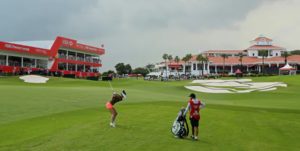
Singapore golf club commits to climate action
Sentosa Golf Club in Singapore is the world’s first golf club to join the United Nation’s sports for climate action initiative. The UN-backed movement […]

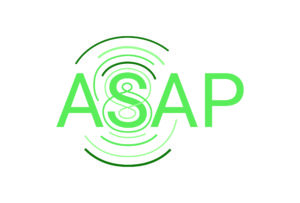
Led by the Czech Olympic Committee, and co-financed by the Erasmus + Programme of the European Union, the ASAP project has for its mission to enable project partners to create, adopt and start implementing integrated sustainability strategies in their organisations, and/or improve the sustainability of their operations.
By translating existing recommendations, guidelines, and best practises into a practical hands-on approach, and by giving this approach a strategic framework, the project helps partner organisations integrate sustainability into the very core of their operations, into their purpose.
To do so, the three years-long project uses a mentor-mentee working method bringing together “sustainability-experienced” National Olympic Committees (Denmark, Finland, Germany) with “sustainability beginners” (Czech Republic, Hungary, Slovakia). Roadmap for the creation of an integrated sustainability strategy will be created as a practical tool for any sport organisation.








FAIR PLAY FOR PLANET is part of a global dynamic that supports sports clubs and events by in developing and strengthening your eco-performance.
FAIR PLAY FOR PLANET promotes a model of economic and social development that is based on concern for the environment.
FAIR PLAY FOR PLANET is a communication and gathering platform for committed, responsible and forward-thinking sport.
Our various services encourage individuals, sports clubs to set up concrete, quantifiable and profitable actions in the service of the environment.


The International Olympic Committee (IOC) has made great progress in promoting gender equality in terms of balancing the total number of athletes participating at the Games, offering leadership development, advocacy participating at the Games, offering leadership development, advocacy and awareness campaigns, and more recently appointing more women to leadership roles within the administration and governance. The priority of gender equality is reaffirmed in the Olympic Agenda 2020, Recommendation 11.
Meanwhile, many Olympic Movement stakeholders have also implemented significant gender equality initiatives so that girls and women are being given greater access and the opportunity to participate in sport.
However, there are still many challenges which need to be addressed, and the pace of progress is slow, particularly in this fast-paced environment.
To address those challenges, the IOC Executive Board (EB) launched the IOC Gender Equality.
Review Project on 16 March 2017 with a mandate to “push gender equality globally” with “action oriented recommendations for change.”
The adoption and implementation of these project recommendations will fulfil the IOC’s obligation under the Olympic Charter “to encourage and support the promotion of women in sport at all levels and in all structures.” It would also significantly contribute to the gender equality objectives of Goal 5 of the United Nations Sustainable Development Goals.
Promoting gender equality not only enhances the positive reputation of the IOC, it demonstrates corporate social responsibility to our commercial partners and it utilises the influence of the IOC to benefit society at large.
The positive impact of gender equality is well documented by social science research and business management studies.
Gender equality within the Olympic Movement creates opportunities for women to participate in public society and allows for women to contribute in roles of influence and decision-making responsibilities. It encourages physical activity and healthy lifestyles for women and girls. It encourages diversity of opinion, a key component of good governance and risk management.

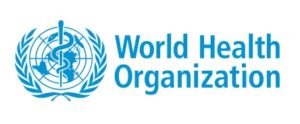
WHO began when UN Constitution came into force on 7 April 1948 – a date that is now celebrated every year as World Health Day. WHO includes more than 7000 people from more than 150 countries working in 150 country offices, in 6 regional offices and at its headquarters in Geneva.
WHO's priority in the area of health systems is moving towards universal health coverage. WHO works with policy-makers, global health partners, civil society, academia and the private sector to help countries develop and implement sound national health plans. In addition, WHO helps countries to provide equitable, integrated, people-centred and affordable health services; facilitate access to affordable, safe and effective health technologies; and strengthen their health information systems and evidence-based health policies.
WHO recently signed an agreement with the International Olympic Committee (IOC) to jointly promote health through sport and physical activity.
In addition, WHO is working with the United Nations (UN) and FIFA to support the #BeActive campaign, launched on the International Day of Sport for Development and Peace, and invite each and every one of us to stay #HealthyAtHome, while the whole world comes together to fight the COVID19 epidemic on a daily basis.

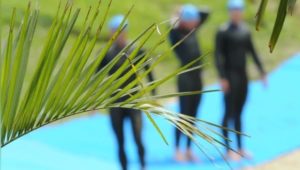
World Triathlon launches Sustainability Guidelines for Event Organisers
World Triathlon continues to work hard to minimise its impact on the planet and, as part of its commitment to doing so, has launched […]




DOW’S Olympic carbon programmes continue to deliver climate benefits and a positive legacy
Worldwide Olympic Partner Dow has announced that its Olympic Games- and IOC-related carbon mitigation programmes have now reached combined reductions of more than five […]




Women and Girls must be participants and leaders in sport recovery plans, says UN Women
While the world is currently working on addressing and recovering from the COVID-19 pandemic, women and girls must be both participants and leaders in […]

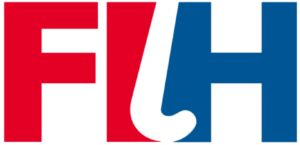
FIH Quality Programme for Hockey turf
A new hockey field is a major investment and it is therefore important that it meets the expectations of hockey players, associations and clubs. To help ensure good quality fields are built for all levels of play, from elite level competition to community development, the FIH has developed an internationally recognised quality-assurance programme - the FIH Quality Programme for Hockey Turf. The programme was launched as part of an initiative of the Hockey Revolution - FIH's ten-year strategy for hockey.
Find out more about the programme by visiting the sections below :
- What can FIH Certification do for my field?
- Building a new field? How to integrate certification into your plans
- Find out who has FIH Certification
- Facility Guidance Resources
- Contact a FIH Accredited Test Institute
- Become a FIH Certified Manufacturer or Field Builder




South Pole works with businesses and governments across the globe. They help realise deep decarbonisation pathways across industries, based on a thorough understanding of climate risks and opportunities in specific sectors, as well as the highest emission reduction standards.
South Pole purpose: Act today for a better tomorrow
Financing the goals of the Paris climate agreement calls for a fundamental shift in the global economy. South Pole success hinges on re-allocating capital at scale, unlocking substantial investments, being nimble and seizing opportunities.
South Pole vision: Climate action for all
The moral case for climate action is clear - failing to meet the climate and sustainable development challenge would push hundreds of millions of people into poverty, with devastating social and economic consequences globally. Moreover, millions of new green jobs are already being created through climate actions across sectors. Climate and human development are sides of the same coin. South Pole strives for a world where businesses, governments and communities make climate action the new normal.
South Pole mission: Accelerate the transition to a climate-smart society
Siouth Pole team of over 350 social entrepreneurs globally are developing innovative solutions tailored to the needs of specific organisations and entire sectors.
Among others, South Pole support FIFA, UEFA and FIA


